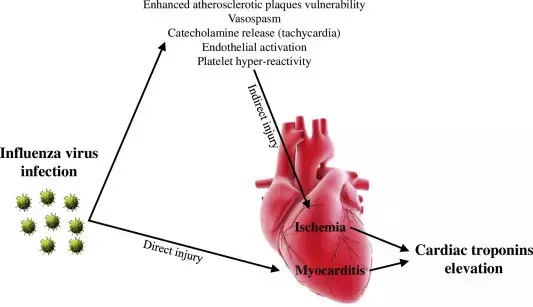- Home
- Medical news & Guidelines
- Anesthesiology
- Cardiology and CTVS
- Critical Care
- Dentistry
- Dermatology
- Diabetes and Endocrinology
- ENT
- Gastroenterology
- Medicine
- Nephrology
- Neurology
- Obstretics-Gynaecology
- Oncology
- Ophthalmology
- Orthopaedics
- Pediatrics-Neonatology
- Psychiatry
- Pulmonology
- Radiology
- Surgery
- Urology
- Laboratory Medicine
- Diet
- Nursing
- Paramedical
- Physiotherapy
- Health news
- Fact Check
- Bone Health Fact Check
- Brain Health Fact Check
- Cancer Related Fact Check
- Child Care Fact Check
- Dental and oral health fact check
- Diabetes and metabolic health fact check
- Diet and Nutrition Fact Check
- Eye and ENT Care Fact Check
- Fitness fact check
- Gut health fact check
- Heart health fact check
- Kidney health fact check
- Medical education fact check
- Men's health fact check
- Respiratory fact check
- Skin and hair care fact check
- Vaccine and Immunization fact check
- Women's health fact check
- AYUSH
- State News
- Andaman and Nicobar Islands
- Andhra Pradesh
- Arunachal Pradesh
- Assam
- Bihar
- Chandigarh
- Chattisgarh
- Dadra and Nagar Haveli
- Daman and Diu
- Delhi
- Goa
- Gujarat
- Haryana
- Himachal Pradesh
- Jammu & Kashmir
- Jharkhand
- Karnataka
- Kerala
- Ladakh
- Lakshadweep
- Madhya Pradesh
- Maharashtra
- Manipur
- Meghalaya
- Mizoram
- Nagaland
- Odisha
- Puducherry
- Punjab
- Rajasthan
- Sikkim
- Tamil Nadu
- Telangana
- Tripura
- Uttar Pradesh
- Uttrakhand
- West Bengal
- Medical Education
- Industry
Elevated Cardiac Troponin levels indicate mortality risk in influenza patients

Influenza most often causes a self-limited respiratory illness and in some instances, may be severe enough to require hospitalization and may even lead to death. In recent research, published in the journal ICJ Heart & Vasculature, researchers have found elevated levels of troponin is associated with the 30-day mortality among hospitalized influenza patients.
Worldwide, more than 1 million deaths may be associated with an influenza pandemic with some strains of avian influenza having a case fatality rate of as high as 60%. Although influenza poses a significant burden to the health of the global population, there are still gaps in the understanding of the precise magnitude of this burden measured in terms of long-term outcomes, complications and costs, especially in patients with severe infection. The impact of troponin levels in predicting long term clinical outcomes among patients with influenza is unknown. Therefore, a research team of South Australia conducted a study to investigate the prognostic impact of hsTnT on 30-day mortality in hospitalised influenza patients.
It was a multicentric retrospective observational study in 1828 patients ≥ 18 years, who had hsTnT performed during admission in two tertiary-hospitals in South Australia between January 2016 to March 2020. They confirmed the diagnosis of influenza by polymerase-chain-reaction (PCR) test and hsTnT > 14 ng/L with a change of > 20% during admission was considered to be indicative of acute-cardiac injury. Clinical characteristics, complications and 30-day mortality were compared among four groups: hsTnT unavailable, hsTnT negative, chronically elevated hsTnT and acutely elevated hsTnT.
Upon analyzing the troponin results of 617 (47.7%) patients, researchers found that 62 (10%) had an acute myocardial injury and 232 (37.6%) had chronic hsTnT elevation. They also found both inpatient and 30-day mortality were significantly higher among patients with acute and chronic hsTnT when compared to other groups. When compared to patients with negative hsTnT, they noted acute but not chronic hsTnT elevation was significantly associated with 30-day mortality after adjustment for various covariates (HR 8.30)
The authors concluded, "This is the largest available analysis of cardiac-specific biomarker hsTnT in patients with influenza. An acutely elevated hsTnT was associated with 30-day mortality among hospitalised influenza patients".
For further information:
Medical Dialogues Bureau consists of a team of passionate medical/scientific writers, led by doctors and healthcare researchers. Our team efforts to bring you updated and timely news about the important happenings of the medical and healthcare sector. Our editorial team can be reached at editorial@medicaldialogues.in.
Dr Kamal Kant Kohli-MBBS, DTCD- a chest specialist with more than 30 years of practice and a flair for writing clinical articles, Dr Kamal Kant Kohli joined Medical Dialogues as a Chief Editor of Medical News. Besides writing articles, as an editor, he proofreads and verifies all the medical content published on Medical Dialogues including those coming from journals, studies,medical conferences,guidelines etc. Email: drkohli@medicaldialogues.in. Contact no. 011-43720751


